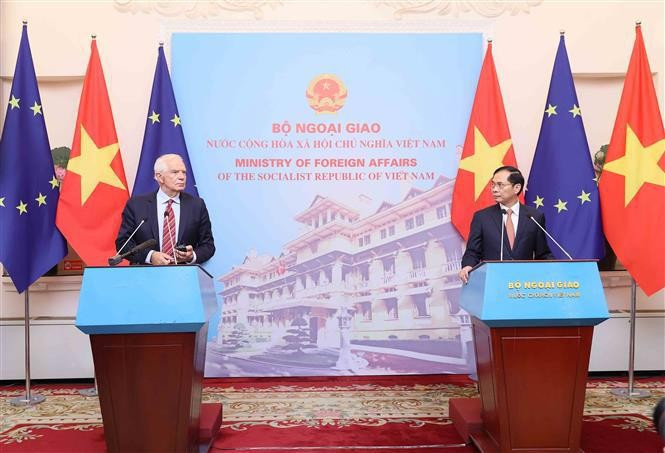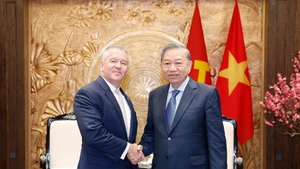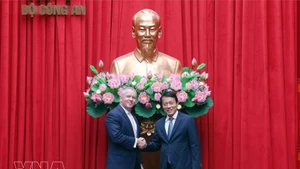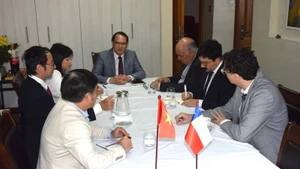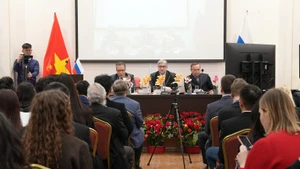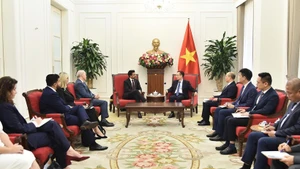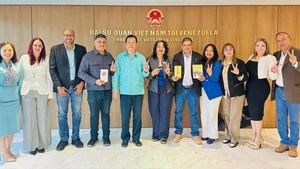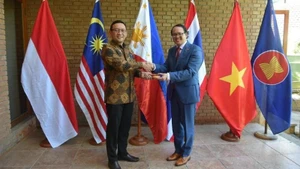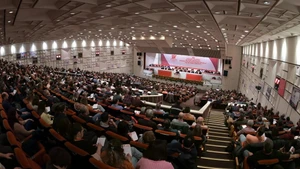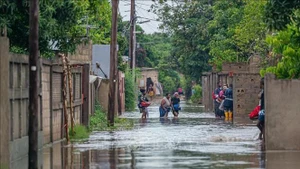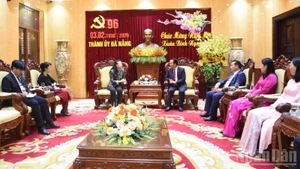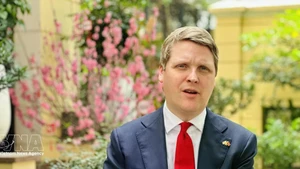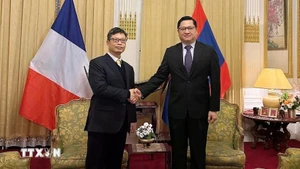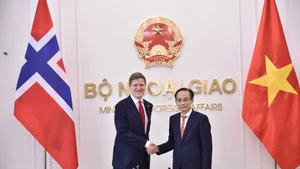Son took this occasion to express sincere thanks to Borrell for attending the state funeral of Party General Secretary Nguyen Phu Trong. The EU High Representative acknowledged the late Party chief's significant contributions to enhancing Vietnam's international image and prestige, as well as to advancing Vietnam-EU relations.
Borrell said the EU is actively implementing various strategies, policies, and specific projects to deepen cooperation with Vietnam and the broader Asia-Pacific region, while working with Vietnam to address global challenges.
Both sides lauded the progress in the Vietnam-EU relations, highlighting their effective implementation of four cooperation agreements and eight dialogue mechanisms across various fields. Vietnam is the first country in the Association of Southeast Asian Nations (ASEAN) to have all comprehensive cooperation pillars with the EU, encompassing politics, economy, defence, and security. The EU is currently Vietnam's fourth largest trading partner, while Vietnam is the bloc’s largest trading partner in ASEAN.
Emphasising trade and investment cooperation as a key pillar, Son stressed the need for both sides to closely coordinate the effective implementation of the EU-Vietnam Free Trade Agreement (EVFTA). He urged the EC to promptly lift its "yellow card" warning against Vietnam's seafood exports, basing on the nation’s efforts and achievements in combating illegal, unreported, and unregulated (IUU) fishing, while calling for the remaining EU member states to quickly ratify the EU-Vietnam Investment Protection Agreement (EVIPA) to unlock the full potential of bilateral economic partnership.
The minister also proposed the EU continue providing official development assistance (ODA) for Vietnam through bilatera and multilateral cooperation channels, and regional programmes, focusing on urgent areas such as public governance capacity building, green economy, digital economy, circular economy, and sustainable fishery development.
He also asked for support from the bloc in financial aid, technology transfer, and human resources training for Vietnam’s effectively implementation of the Just Energy Transition Partnership (JETP), including the establishment of a carbon credit market connected to the international market and the development of green hydrogen projects.
Vietnam stands ready to serve as a bridge to promote the EU’s cooperation with the region, including strengthening the ASEAN-EU strategic partnership and implementing their action plan for 2023-2027, the minister affirmed.
Agreeing with Son’s proposals, Borrell highlighted the EU's commitment to working closely with Vietnam to effectively carry out existing dialogue mechanisms and advance cooperation across all sectors, including politics, diplomacy, trade-investment, defence-security, climate change response, and energy transition. He assured efforts to encourage the remaining EU member states to ratify the EVIPA, facilitating a breakthrough in bilateral investment cooperation.
The EU supports Vietnam's goal of achieving net-zero emissions through the effective implementation of JETP and wishes to enhance collaboration with the country under frameworks such as the EU's Global Gateway Initiative, he affirmed.
As Vietnam and the EU prepare to celebrate 35 years of diplomatic relations in 2025, the officials agreed to increase high-level exchanges and further elevate the partnership to a new, more dynamic and comprehensive phase, commensurate with the potential and aspirations of both sides.
On regional and international matters of mutual interest, the host and guest shared the view that it is essential to enhance cooperation in addressing global challenges, including traditional and non-traditional security issues. They underscored the importance of de-escalating tensions in hot spots and resolving conflicts through peaceful means, and dialogue with respect for the legitimate interests of all parties involved.
Borrell stated that the EU supports Vietnam's and ASEAN's stance on freedom of navigation and overflight, peaceful settlement of disputes, and adherence to international law, particularly the United Nations Convention on the Law of the Sea (UNCLOS) 1982 as well as the yearly finalisation of a practical and effective Code of Conduct (COC) in the East Sea/South China Sea.
Following the talks, the two officials met with the press and participated in several activities.
